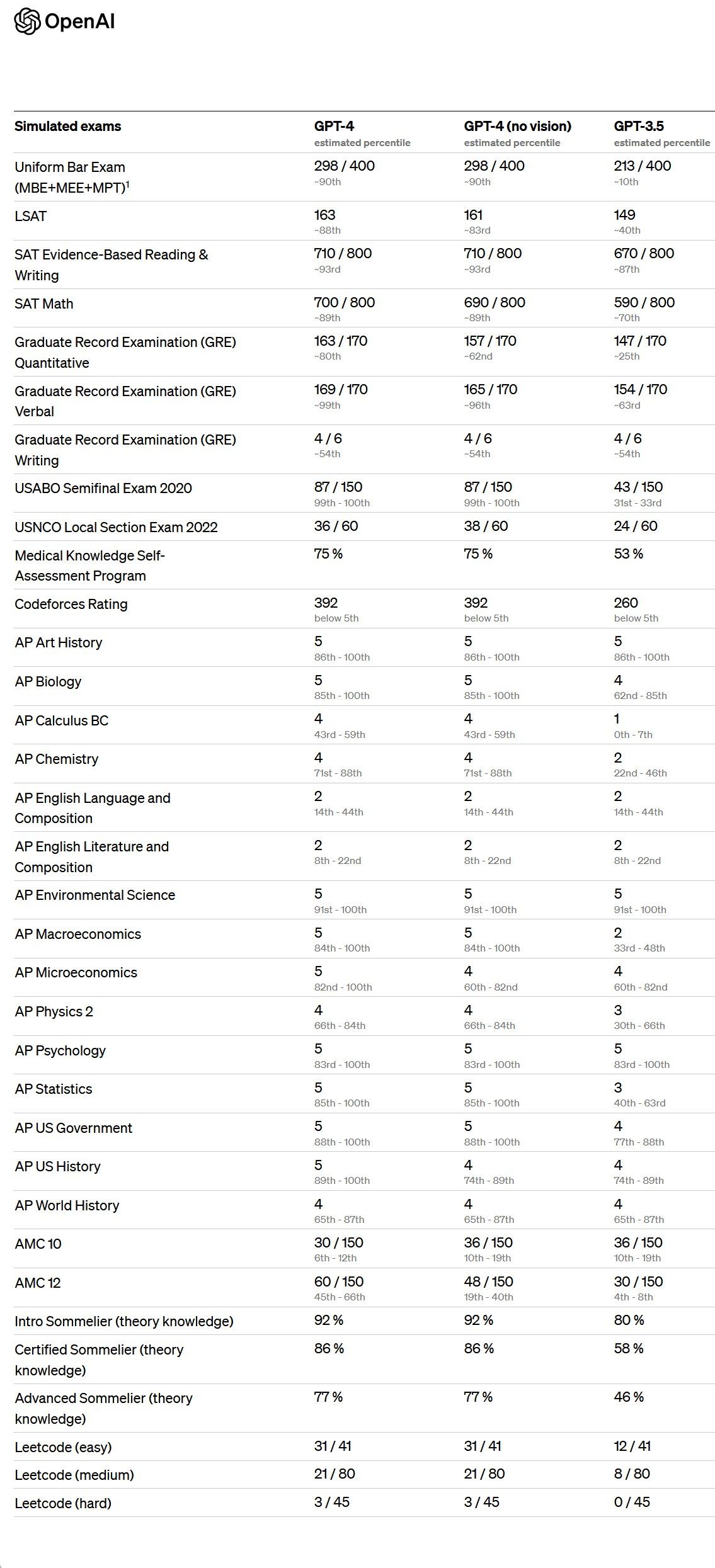Tech Ethics Group Seeks to Halt OpenAI's GPT-4 Release
The Center for Artificial Intelligence and Digital Policy (CAIDP), a tech ethics group, has formally requested that the U.S. Federal Trade Commission (FTC) prevent OpenAI from releasing new commercial versions of its groundbreaking GPT-4 AI program. Describing the technology as "biased, deceptive, and a risk to privacy and public safety," CAIDP's complaint comes in the wake of an open letter calling for a six-month pause in the development of AI systems more powerful than GPT-4.
GPT-4: Exciting Users and Raising Concerns
OpenAI, a California-based company supported by Microsoft Corp., unveiled GPT-4 (Generative Pre-trained Transformer) in early March. The AI program has sparked enthusiasm among users for its ability to engage in human-like conversations, compose music, and summarize extensive documents. While some marvel at the technology's capabilities, others express serious concerns over its potential societal impact.
FTC Complaint Follows Open Letter to Elon Musk and AI Experts
The formal complaint to the FTC follows an open letter addressed to Elon Musk, AI experts, and industry executives, urging a temporary halt to the development of systems more powerful than GPT-4. Signatories to the letter, which included more than 1,000 individuals, cited potential risks to society as a reason for pausing AI experimentation.
CAIDP: GPT-4 Fails to Meet FTC Standards
In its complaint, CAIDP argued that OpenAI's ChatGPT-4 does not meet the FTC's standard for being "transparent, explainable, fair, and empirically sound while fostering accountability." Marc Rotenberg, CAIDP President and veteran privacy advocate, emphasized the FTC's responsibility to investigate and prohibit unfair and deceptive trade practices. In a statement on the group's website, Rotenberg urged the FTC to scrutinize OpenAI and GPT-4 closely.
CAIDP Calls for Investigation and Establishment of Guardrails
The tech ethics group requested that the FTC launch an investigation into OpenAI, halt further commercial releases of GPT-4, and ensure the implementation of necessary safeguards to protect consumers, businesses, and the commercial marketplace. The complaint highlights the growing debate surrounding the ethical implications of AI technology and the role of regulatory bodies in monitoring its development and application.
Valid Concerns?: Meeting FTC Standards and Driving Innovation
While the Center for Artificial Intelligence and Digital Policy (CAIDP) argues that ChatGPT-4 does not meet the Federal Trade Commission's (FTC) standards for transparency, explainability, fairness, and empirical soundness, it is essential to consider the broader context and potential benefits of AI technology. It is also prudent to consider if these are valid concerns or fear of technology.
Transparency and Explainability in AI Development
AI transparency and explainability have always been areas of concern, as understanding how algorithms arrive at specific conclusions can be challenging. However, OpenAI has taken significant steps toward addressing these concerns by sharing its research, methodologies, and development processes publicly. By doing so, the company demonstrates a commitment to transparency and allows for external scrutiny, which can help ensure that AI systems operate responsibly and ethically.
Promoting Fairness and Empirical Soundness
Fairness in AI systems is typically associated with the elimination of biases that may arise from training data or other factors. OpenAI has acknowledged the importance of addressing biases in AI systems and has taken measures to improve the fairness of its models. The company continually refines GPT-4 based on user feedback and works to mitigate potential biases that may emerge over time.
Empirical soundness requires AI systems to produce reliable and accurate results. GPT-4 has demonstrated its ability to generate human-like responses, compose music, and summarize complex documents, showcasing its empirical capabilities. As the technology continues to evolve, OpenAI is committed to refining and enhancing its models, ensuring that GPT-4 remains empirically sound.
OpenAI's GPT-4 has displayed remarkable advancements in accuracy, outperforming its predecessors by an impressive 40-60% on average. Its ability to excel in various examinations and domains demonstrates the potential for AI technology to revolutionize industries and challenge traditional notions of expertise.
Acing Exams and Surpassing Professional Expertise: GPT-4's performance in standardized tests is nothing short of astounding. The AI system has achieved remarkable scores, such as 90% on the Bar Exam, 88% on the LSAT, 80% on the GRE Quantitative section, and 99% on the GRE Verbal section. Furthermore, GPT-4 has excelled in every AP exam and the SAT, showcasing its versatility and adaptability across a wide range of subjects.
These impressive results reveal that GPT-4's accuracy is on par with or even surpasses the expertise of professionals in various domains. Such capabilities have the potential to revolutionize industries by enhancing decision-making, streamlining processes, and improving overall efficiency.
Transforming Industries with AI Expertise: With GPT-4's demonstrated proficiency, AI technology can be an invaluable tool in several sectors, including law, education, research, and finance. Legal professionals could leverage GPT-4's expertise in navigating complex regulations and case law, while educators and students could benefit from the AI system's ability to provide accurate and personalized guidance.
In research, GPT-4's proficiency in processing and summarizing vast amounts of information can accelerate the discovery of new insights and drive innovation. In finance, the AI system's quantitative and analytical capabilities can enhance risk assessment and inform data-driven decision-making.

Embracing the Potential of GPT-4 and Beyond
The extraordinary performance and accuracy of GPT-4 highlight the potential for AI technology to reshape our understanding of expertise and transform industries. By embracing the capabilities of AI systems like GPT-4, while prioritizing collaboration and ethical considerations, we can harness the power of AI to drive progress and create a better future for all.
Fostering Accountability in AI Innovation
OpenAI has shown a willingness to engage with ethical concerns and collaborate with external stakeholders to improve its AI systems. By actively seeking feedback and making adjustments based on this input, the company demonstrates its commitment to fostering accountability in AI development.
Moreover, OpenAI's participation in industry forums and conferences, as well as its collaboration with academic institutions, further highlights its dedication to maintaining an open dialogue with the broader AI community. This engagement helps to create a culture of accountability, ensuring that AI systems align with societal values and ethical standards.
The Potential for Positive Societal Impact
It is crucial to recognize that AI technologies like GPT-4 have the potential to revolutionize various aspects of society positively. From enhancing communication and creativity to improving efficiency and decision-making, AI systems can contribute significantly to the betterment of our lives.
While it is essential to proceed cautiously and prioritize ethical considerations, it is equally vital to embrace the potential benefits of AI innovation. OpenAI's GPT-4, when responsibly developed and regulated, could align with FTC guidelines and serve as a powerful tool for driving progress across numerous industries and applications.
Encouraging Responsible AI Development
While it is essential to proceed with caution when it comes to AI development, it's also crucial not to stifle innovation. By working together, industry leaders, AI experts, and regulatory bodies can establish necessary safeguards and promote responsible AI development.
Instead of demanding a complete halt to GPT-4's development, we should encourage dialogue and collaboration between stakeholders to ensure the technology is developed responsibly and ethically. This approach will not only benefit the AI industry but also help pave the way for a brighter, more innovative future.
Striking a Balance Between Innovation and Ethics
The debate surrounding OpenAI's GPT-4 raises important questions about the future of AI and its potential impact on society. While it's crucial to address concerns surrounding bias, deception, and privacy, we must also remain open to the possibilities that AI can offer in both business and personal life.
As technological advancements continue to push the boundaries of what is possible, it is essential to strike a balance between innovation and ethics. By fostering open dialogue and collaboration between stakeholders, we can ensure a future where AI serves as a force for good, driving progress and improving the human experience.
In conclusion, while it is essential to address concerns raised by organizations like CAIDP, it is also necessary to acknowledge the potential benefits and positive contributions of AI technologies like GPT-4. By fostering transparency, explainability, fairness, and accountability, OpenAI can continue to innovate and ensure that AI systems like GPT-4 align with the best interests of society.







